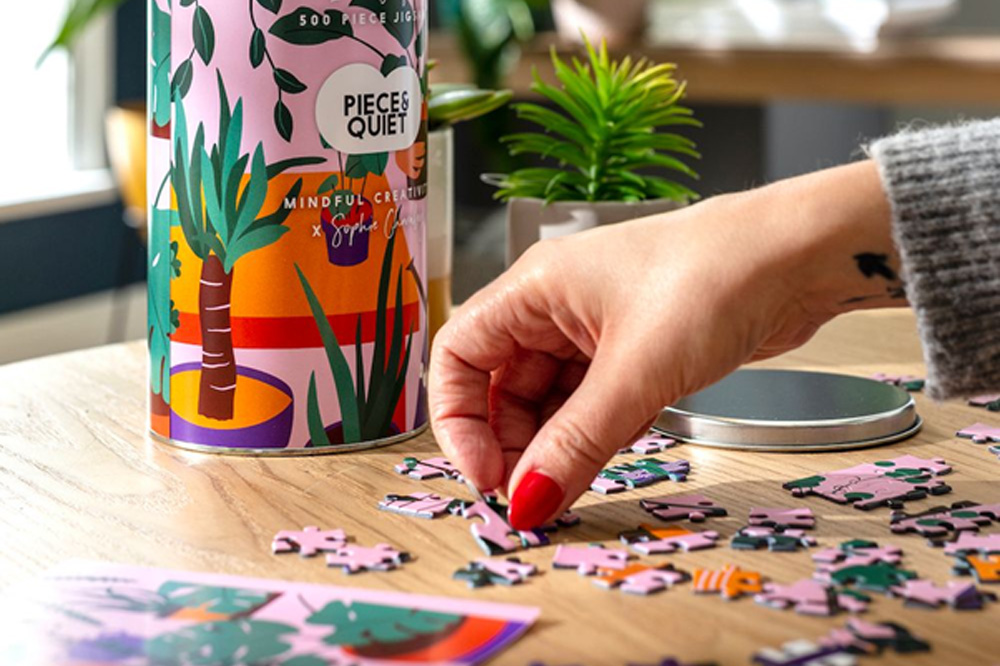It’s the rainy-day classic that became a lockdown essential, and while there’s nothing new about puzzles (the first jigsaw is thought to have been created in 1762), many of us are just starting to realise the potentially mindful boost that comes with putting the pieces of a puzzle together. Picture this: you’ve got the whole of the day ahead of you, no commitments, no meetings, no chores – the time is yours. So you sit down with a puzzle. There’s no rush, no deadline and, piece by piece, a beautiful picture starts to form in front of you. It’s a homey, mindful scene but, in lockdown, hobbies like puzzling took on a whole new meaning. Little wonder as they provide some major wellbeing benefits:
1. Improving brain function and memory – The oh-so-satisfying act of successfully placing a puzzle piece does more than just get you one step closer to finishing your piece of art. It encourages the production of dopamine, a chemical in the brain that contributes to learning, brain health, memory and feeling good.
2. Time away from screens – An article in the Independent investigated the time an adult will spend looking at screens in their lifetime, and it doesn’t make for good reading. They found that, on average, British adults were spending more than 13 hours a day looking at screens which equates to more than 200 days a year. Anything which helps to get this number down, and that gives us the opportunity to take the time to fully engage in the present moment, and puzzling is a great way to achieve that.
3. Increased cognitive ability – Jigsaw puzzles are proven to exercise the mind, boosting cognition and visual-spatial reasoning, but they’ve also been shown to increase creativity and productivity. The science behind why jigsaws are so effective at kicking your brain into gear is that they engage both the left (analytical) and the right (creative) side of the brain simultaneously.
4. Reducing stress and anxiety – Exercising both sides of the brain simultaneously has other benefits too. It allows brainwaves to move from a ‘beta’ state into an ‘alpha’ state – the same state activated for dreaming, and where our subconscious comes into play – in other words, the mindful side. When times get tough, it’s remarkable what taking things back to basics can do for our mindset, and the rise in the popularity of jigsaw puzzles is the perfect example of this principle in action. So, whether you’re ready to dive into a 1,000-piece whopper, or want to start simple, it could be time to pick up the pieces of good wellbeing.




